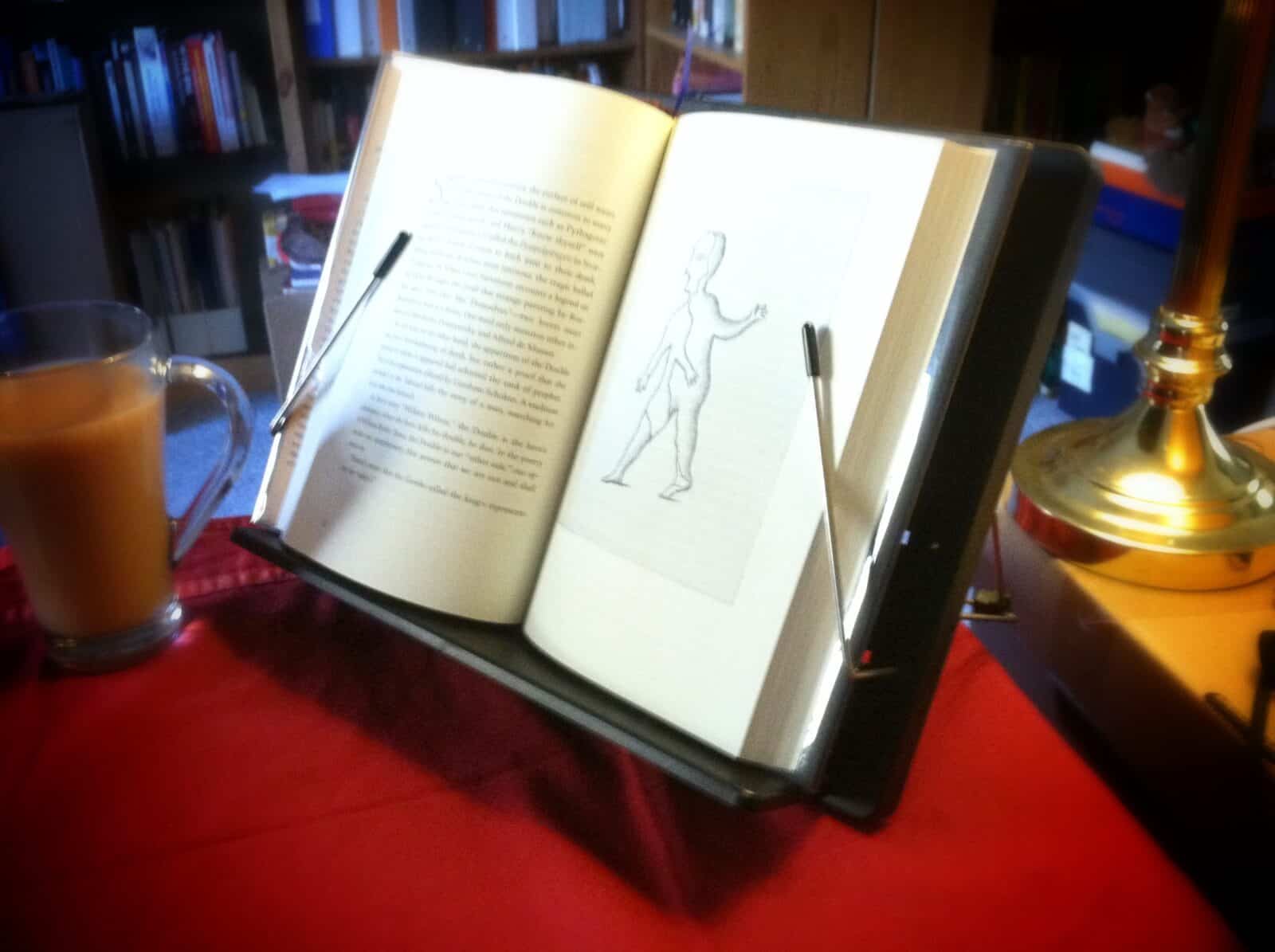What if a library could hold every book that can ever be written? This one is made of hexagonal rooms like a beehive, where ‘light is provided by some spherical fruit which bear the name of lamp.’ No real fruit seems to grow inside … and librarians can travel for years without finding the end.
This labyrinth belongs to the internationally known Argentine writer, poet, philosopher, translator Jorge Luis Borges, in his short story, The Library of Babel. And Milne Public Library will explore it in a community conversation, at 10 a.m. on April 16, as part of the springlong celebration of their 150th anniversary.
‘Like all men of the Library, I have traveled in my youth; I have wandered in search of a book, perhaps the catalogue of catalogues …‘
‘Like all men of the Library, I have traveled in my youth; I have wandered in search of a book.’ — Jorje Luis Borges
Borges shapes a world in a maze of words and mirrors. He had a major influence on the magic realist movement in 20th-century Latin American literature, says Julie Mackaman, a member of the Milne library’s First Friday book club. — and he is one of the world’s most famous librarians.
Like the librarian telling his story, he was also a blind librarian. He suffered from a genetic condition, Mackaman said, that took his sight completely just as he became director of Argentina’s National Public Library. He mused that he was now in charge of nearly a million books he could no longer read.
Mackaman will lead a new group of travelers inside his fantastic world, along with Gene Bell-Villada, a friend of hers and Williams College professor of Spanish who has literally written the book on Borges, she said — Borges and His Fiction: A Guide to his Mind and Art. Bell-Villada also teaches Gabriel Garcia Marquez and magic realism. He chose April 16 for their talk, which happens to be National Librarian Day.
‘He suffered from a genetic condition that took his sight completely just as he became director of Argentina’s National Public Library. He mused that he was now in charge of nearly a million books he could no longer read.’ — Julie Mackaman on Borges
The idea rose out of a celebration of libraries, books, people who write and read them. As Judy Ensign, a library volunteer and longtime friend of the Milne, was planning the 150th anniversary, she wanted to celebrate book clubs, and she asked Mackaman.
Local book clubs can often be private, Mackaman said, a meeting of friends. She also wanted to celebrate people who love talking about books together, and so she suggested the First Friday book club could dive into a short story about libraries — and a wonderful, rich, funny, unusual writer.
She hopes a friendly and open talk can offer an easy way in for people who don’t know his stories, and some fun for people who love them.
“A lot of people I know don’t know Borges,” she said, “or if they have heard of him, they have never read anything by him.”

Books show bright spines on a windowsill in the sunlight. Creative Commons courtesy photo
She likes the idea of inviting people to get to know someone they have heard of but have never read, as many people think about James Joyce (unless they have heard him read aloud at Bloomsday celebrations around town).
This story is short, she said, some seven pages, and for her unique, Borges images a library like a funhouse of mirrors, a place with infinite rooms and infinite bookshelves … that only occasionally have words in any known languages.
Some seem to defy the laws of spacetime, a Möbius strip, a wave and a particle, a kind of quantum typography.
Borges images a library like a funhouse of mirrors, a place with infinite rooms and infinite bookshelves … — Julie Mackaman
“The mystics claim that their ecstasy reveals to them a circular chamber containing a great circular book, whose spine is continuous and which follows the complete circle of the walls.”
Some of fictional books have distinct names — like The Combed Thunderclap (as though stormclouds could be carded like wool). But none that the narrator has opened in his lifetime have had narrative, or writers, or consciousness.
In his own stories, Borges often immerses in magic and myth — a bestiary of imaginary animals, a book of imaginary beings, a fascination with languages. In one of the most coherent books in this maze, language families weave together.
“Five hundred years ago, the chief of an upper hexagon 2 came upon a book as confusing as the others, but which had nearly two pages of homogeneous lines. He showed his find to a wandering decoder who told him the lines were written in Portuguese; others said they were Yiddish.
“Within a century, the language was established: a Samoyedic Lithuanian dialect of Guarani, with classical Arabian inflections.”
The mystics claim that their ecstasy reveals to them a circular chamber containing a great circular book, whose spine is continuous and which follows the complete circle of the walls.’ — Borges
The speakers of his imagined language must have been well-traveled. Guarani is the language of a South American people in Paraguay. Samoyed is Russian, Indigenous to Siberia.
Could he raise questions about cultures who are and are not in the archives, and who chooses, Mackaman wondered, like George Washington singing in the musical Hamliton — “You have no control — who lives, who dies, who tells your story.”
And if a library could gather storytellers in Portuguese and Yiddish, Guarani and Samoyed and Arabic, from any time and place, what stories would they tell?

Jorge Luis Borges' Book of Imaginary Beings sits open on a red placemat beside a cup of coffee. Creative Commons courtesy photo

